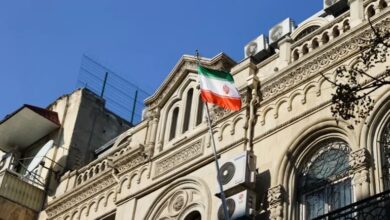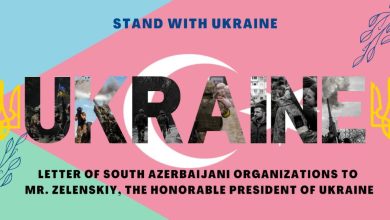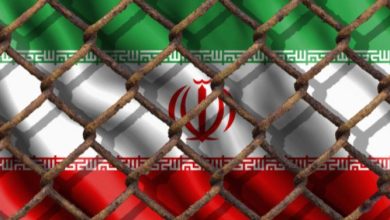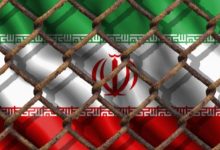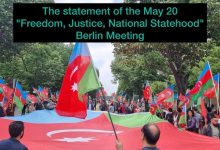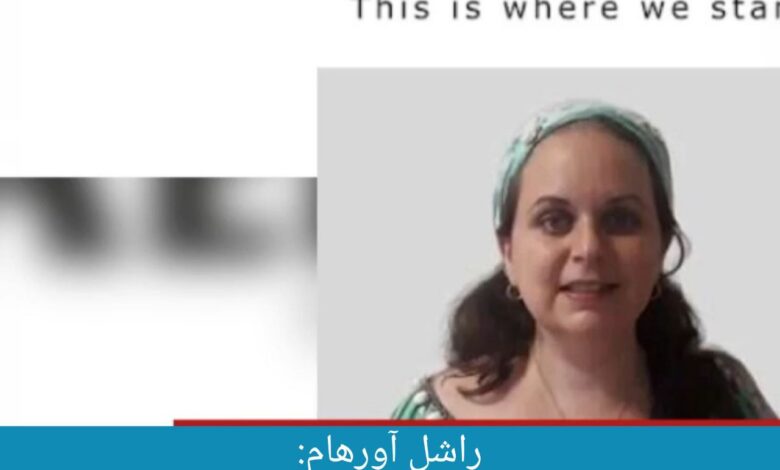
Historically, there was no division between North and South Azerbaijan. From the Sassanid Empire in the 3rd century through the 18th century, both North and South Azerbaijan were part of the same nation. This only changed following the Russo-Iranian Wars of 1804-1813 and 1826-1828, when Iranian and Russian colonists decided to cut Azerbaijan in half.
Furthermore, Article 15 of the Treaty of Turkmenchay signed on Feb. 10, 1828, stipulated for the settlement of Armenians “in a region called Azerbaijan.” In other words, Iran and Russia arranged for Armenians to be settled in Azerbaijan, without taxes or tariffs being imposed upon them, leading to about 40,000 to 50,000 Armenians being moved from Iran to Azerbaijan. Later on, another 90,000 would join them from Iran, Turkey and other Eastern countries, thus providing the conditions for the future Armenian territorial claims against Azerbaijan.
When I visited Karabakh, I personally saw all of the Azerbaijani homes that were destroyed during the course of thirty years of conflict. According to our local guides, much of the building materials that were used to make those homes were sold to the Iranians and I even saw how an Azerbaijani mosque was transformed into an Iranian mosque by the Armenians. As Azerbaijani activist Tarlan Ahmadov stated, “In the occupied territories of Azerbaijan, Iran played a significant role in supporting Armenia. Everything that they did was against Azerbaijan. During the 44 days of war, we saw how they supported the Armenian Army by transporting Russian weapons to Armenia via Iran. We are very worried how Iran threatens us and interferes in everything.”
And today, it is Iran who is trying to thwart peace being made between both sides. According to Ahmadov, “Just a day before the opening of the Azerbaijani Diaspora Convention in Shusha in late April 2022, the Iranian government opened the Armenian Museum to preserve Armenian history in the Tabriz region. These kinds of provocations and the falsification of the history of Azerbaijani settlement in the region are only shows of the hypocritical and anti-Azerbaijani politics of the mullah regime in Iran. It is sad to see that Iran could not accept Azerbaijan as an independent, powerful and friendly neighboring country, with a historical, religious and cultural shared history.”
In a recent interview published in the media, Iran’s Ambassador to Armenia Abbas Badakhstan Dohouri indicated that Iran supports Armenia in the conflict and described Armenia, not Azerbaijan, as a friendly country: “Iran’s share in Armenia’s foreign trade is about 6%, which is higher than its foreign trade figure with other neighboring countries.”
With the Armenians and Azerbaijanis now taking tentative steps toward peace, a weakened Iran would help to ensure peace between both sides considering the role that Iran played in starting and perpetuating the whole conflict, to begin with. As Ahmadov noted, “South Azerbaijanis are not allowed to speak in their language. They don’t have radio, schools or media in their language. The wisdom of President Ilham Aliyev shows that he gave a good message to the Iranian government that we would be good neighbors and live in peace, but that does not mean that they should threaten our peace.” Thus, perhaps the best way to ensure peace between Armenians and Azerbaijanis is to see South Azerbaijan unite with North Azerbaijan. Then, Iran would not be able to stand in the way of peace between Azerbaijan and Armenia ever again.
Rachel Avraham is the editor of the Economic Peace Center, which was established by former Israeli Communication Minister Ayoob Kara. She is also the author of “Women and Jihad: Debating Palestinian Female Suicide Bombings in the American, Israeli and Arab Media.”


